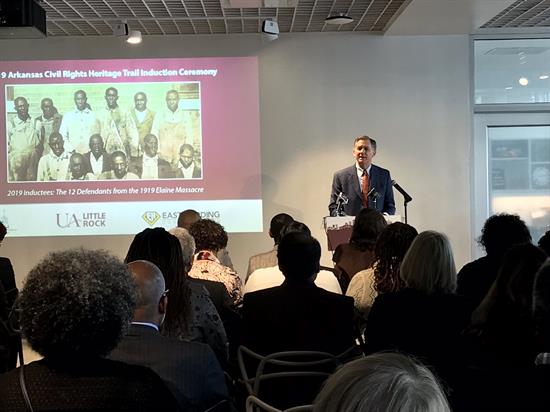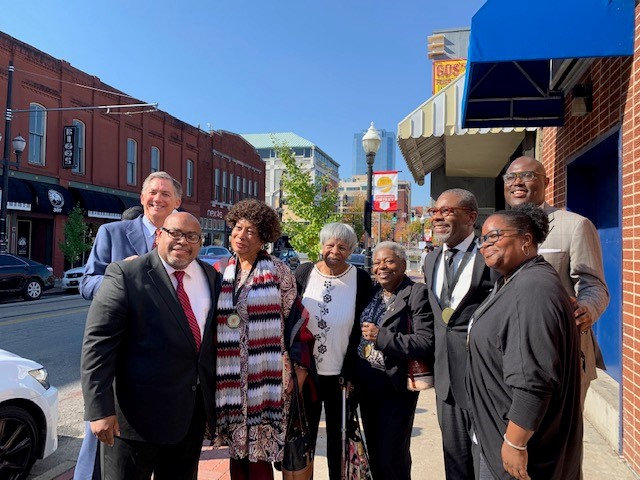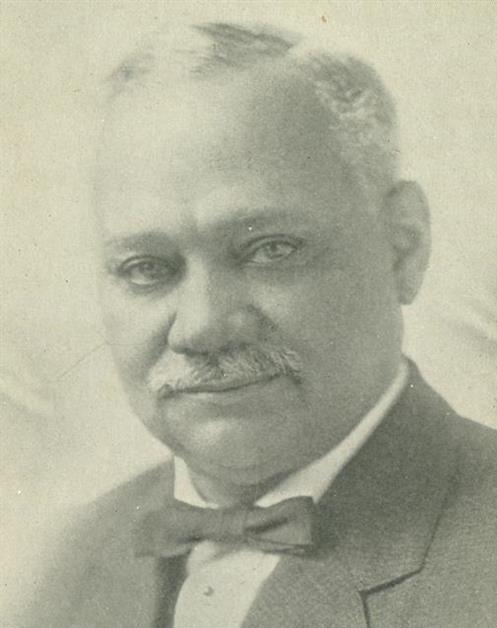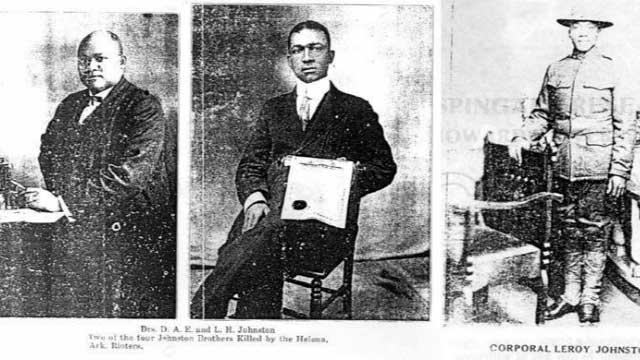Rep. Hill Speaks at Induction Ceremony for Arkansas Civil Rights Heritage Trail
Washington,
November 6, 2019
WASHINGTON, D.C. — Today, Congressman French Hill (AR-02) spoke at the Induction Ceremony for the Arkansas Civil Rights Heritage Trail at the University of Arkansas at Little Rock Downtown Center. The induction ceremony honored the 12 African American men who were convicted of murder in 1919 during the Elaine Massacre and later exonerated.
"I am here in remembrance of sacrifice and tragedy,” said Congressman Hill. "And, in recognition of injustice, resilience and the opportunity for progress. As Judge Brian Miller said at the recent dedication ceremony of the Elaine Massacre Memorial, we are 'yearning for reconciliation.' Today at this induction ceremony, we have an opportunity to add a new chapter in Arkansas's history – a chapter that recognizes the legacy of this tragedy, honors its victims, and looks to our future with hope and optimism.” H.R. 3317, Scipio Jones Post Office Portrait Act One of the heroic stories that emerged from the ashes of the Elaine Massacre was that of Scipio Africanus Jones (pictured below), one of the greatest lawyers in American history. Jones's skillful legal defense saved the lives of 12 unfairly charged sharecroppers from the Elaine Massacre who were originally sentenced to death by an Arkansas state court. Jones's actions resulted in the landmark Supreme Court decision in Moore v. Dempsey establishing that federal courts could review criminal convictions in state courts under the Due Process Clause of the Fourteenth Amendment. To honor his legacy, I'm proud to be the sponsor of legislation authorizing a portrait of Scipio Jones to be displayed at the U.S. Post Office in Little Rock that bears his name.
H.R. 2249, the World War I Valor Medals Review Act
|






